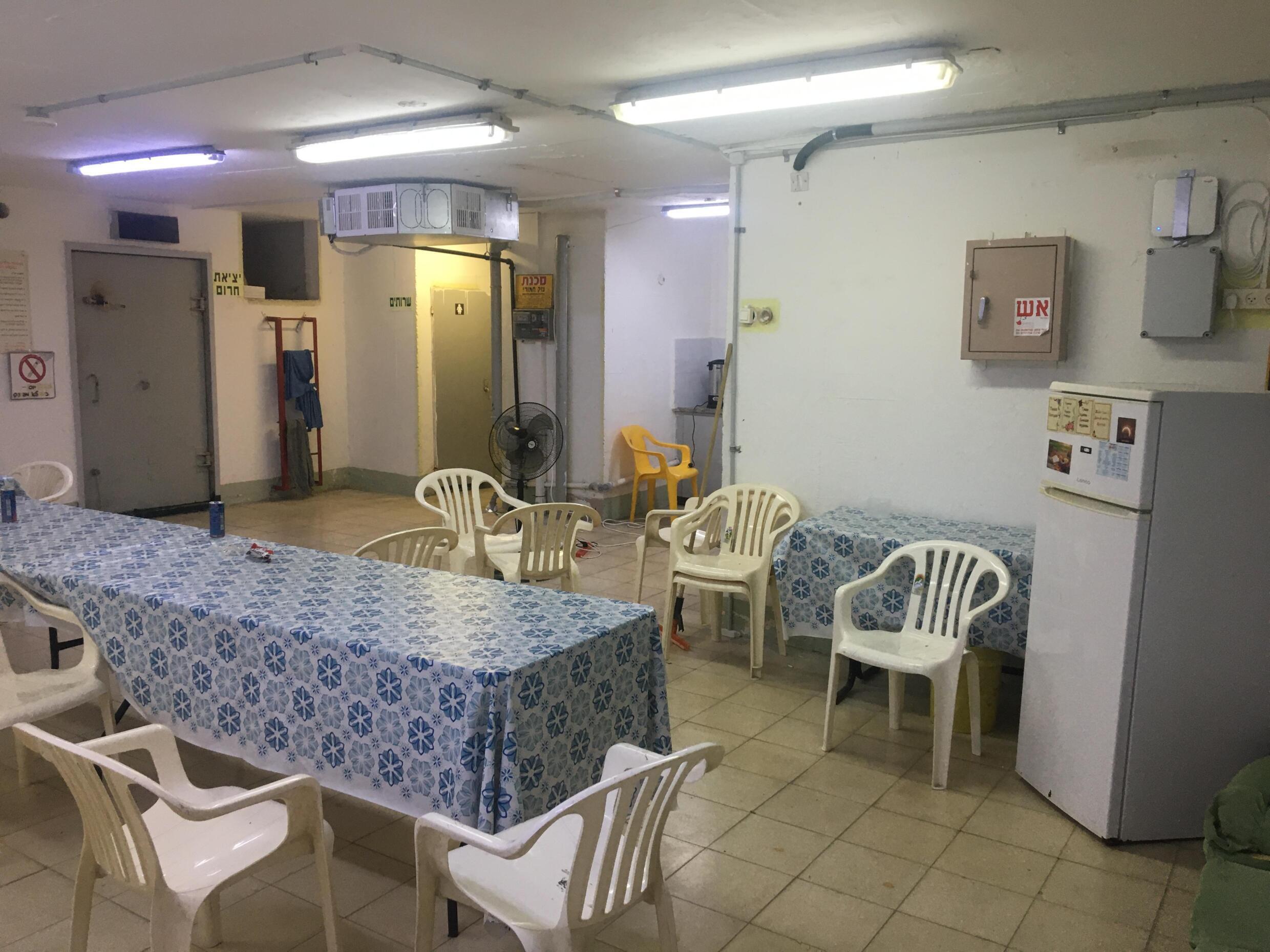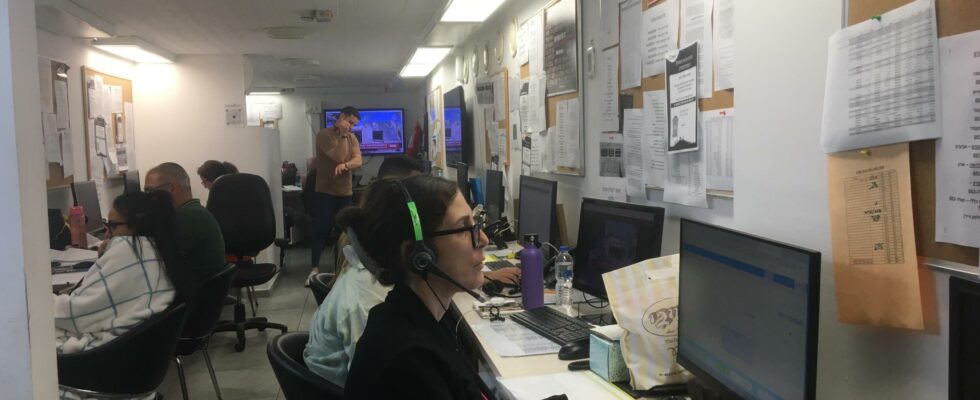As Israeli strikes continue in Lebanon, Haifa, the largest city in northern Israel with 320,000 inhabitants, has already been targeted by several rounds of Hezbollah fire since Sunday. Local authorities and residents are on high alert.
5 min
From our special correspondent in Haifa,
The Haifa Municipality’s emergency management center is no longer located at the city hall, but a few hundred meters away, in protected offices in the basement, where all municipal services, about 200 people, were transferred on September 22. The following day, a state of emergency was declared in northernIsraelschools in Haifa have therefore closed their doors. Classes are being taught remotely, by computer.
In the emergency management center of the city hall, a monitoring room with many screens has been installed. This is where the bombing alerts sent by the army arrive. The command of the “passive defense”, the branch of the army that deals with the protection of civilian populations, has a permanent representative there, as do the various emergency services, ambulances, firefighters.
Public bomb shelters
This is also where the call center is located, where residents can contact for information, including the location of public shelters scattered around the city, and where they can take refuge when the alarm sirens sound. Shelters made of reinforced concrete, usually underground. These shelters can accommodate between 50 and 100 people. They have electricity and are equipped with a fridge and internet.

One minute to take cover
The army’s “Iron Dome” anti-missile system intercepts most projectiles, but if it fails, you have to take cover. And because Haifa is only about forty kilometers from the border with Lebanon, you have to move very quickly. What we tell residents is that in the event of an alarm, they have one minute to get to a safe room. At home, if they have one, or in a public shelter. One minute is the time between the detection of the missile and its possible fall on the city. “, says Leonid Reznik, head of the emergency management center at Haifa City Hall.
Sirens have sounded several times in recent days in Haifa. Again on the evening of September 24. The missiles were destroyed in mid-flight, without causing any casualties. But debris fell in some neighborhoods, and obviously the risk remains constant. We were at the seaside with my friend, when suddenly, we heard the sirens, says Talia, a dancer in her twenties. There was lightning in the sky, we saw the projectiles being intercepted, army helicopters took off. We panicked, and since there was no bomb shelter nearby, we lay down on the ground. It was very scary. “.
Some residents refuse to panic and do not even try to find out where the shelters are. Others do not hide their fear and prepare themselves, for example by stocking up on food or setting up the necessary items in the protected room they have at home. This is the case of Olga Olgoumar, who runs a grocery store in the city center. We are prepared. There is a shelter in our building, with water and the whole family’s papers, she says. Yesterday, when we heard the sirens, we immediately took the children, the dog, and went downstairs. As soon as the door was closed, we heard “booms“. I was very scared. “.
Residents divided on military operations
The Israeli army announced on September 25: prepare for a land maneuver ” in Lebanon, without further details. Among the inhabitants met in Haifa, many support these military operations, considered necessary for the security of the country. These are the supporters of force, who explain that they see no other option.
Others say they are saddened by the number of victims in Lebanon, with the new offensive launched a week ago by Israeli forces, or of course in Gaza, for the past year. They too obviously keep in mind the Hamas attacks, which plunged the country into mourning, almost a year ago. They too believe it is necessary to defend their country, but they are now questioning the strategy of the Israeli government and its ability to bring peace in this way.
” I don’t know if this will bring peace to the north, or if it will allow the evacuees to return home, explains Talia. But I am so sad when I think of all the victims up there in Lebanon, the victims also in Gaza. The saddest thing is that I don’t know if our leaders themselves know where they are going, if they know how to get out of this crisis. “.
